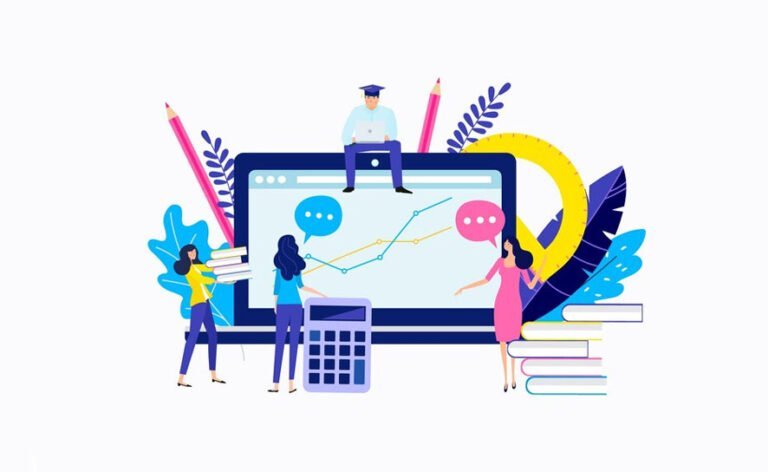As a student, you’re always looking for ways to improve your grades. Whether you’re in high school or college, the pressure to perform well academically can be intense. The good news is that several effective study techniques can help you achieve better grades.
In this article, we’ll explore five of the most effective study techniques that you can use to take your academic performance to the next level.
1. Active Recall
Active recall is a study technique that involves actively engaging with the material you’re trying to learn. Instead of simply reading your notes or textbook, you actively try to recall the information from memory. This can be done through flashcards, practice questions, or even just closing your eyes and trying to remember what you’ve learned. By actively engaging with the material, you’re more likely to remember it long-term.
One of the best ways to use active recall as a study method is to create flashcards. Write a question or key term on one side of the card and the answer or definition on the other side to help retain information. Then, quiz yourself by looking at the question and trying to recall the answer before flipping the card over to check. This technique is particularly effective for memorizing vocabulary, definitions, and key concepts.
Another way to use active recall as a good study habit to develop is to practice answering questions about the material you’re studying. This can be done through practice tests, study guides, or even just asking yourself questions as you read through your notes. By actively engaging with the material and testing your knowledge, you’re more likely to identify areas where you need to focus your studying efforts.
2. Spaced Repetition
Spaced repetition is a study technique that involves reviewing material at increasing intervals over time. The idea behind spaced repetition is that by reviewing material at increasingly longer intervals, you’re more likely to remember it long-term. This technique is particularly effective for material that you need to memorize, such as vocabulary words or historical dates, to help you retain information.
To use spaced repetition as a study method, start by reviewing the material you want to learn. Then, wait a short period of study time (such as a few hours or a day) before reviewing it again. As you become more familiar with the material, increase the amount of study time between reviews to improve your study habits. For example, you might review the material again after a few days, then a week, then two weeks, and so on.
There are several apps and websites that can help you implement spaced repetition in your studying. Anki is a popular flashcard app that uses spaced repetition to help you memorize material more effectively. Quizlet is another popular website that allows you to create flashcards and study sets using spaced repetition.
3. Elaborative Rehearsal
Elaborative rehearsal is a study technique that involves connecting new information to existing knowledge. The idea behind elaborative rehearsal is that by relating new information to something you already know, you’re more likely to remember it long-term. This technique is particularly effective for material that is abstract or difficult to understand.
To use elaborative rehearsal, start by identifying the key concepts or ideas in the material you’re trying to learn. Then, try to relate those concepts to something you already know to retain information more effectively. For example, if you’re trying to learn about the water cycle, you might relate it to the way water moves through a plumbing system. By making these connections, you’re more likely to remember the new information long-term.
Another way to use elaborative rehearsal is to create analogies or metaphors that help you understand the material better. For example, if you’re trying to learn about the structure of an atom, you might compare it to a solar system, with the nucleus as the sun and the electrons as the planets orbiting around it. By creating these visual or conceptual connections, you’re more likely to remember the material long-term.
4. Interleaving
Interleaving is a study technique that involves mixing up different types of problems or topics within a study session. The idea behind interleaving is that by switching between different types of problems or topics, you’re more likely to develop a deeper understanding of the material and be able to apply it in different contexts. This technique is particularly effective for material that requires problem-solving skills, such as math or science.
To use interleaving, start by identifying the different types of problems or topics you need to study. Then, create a study session that mixes up these different types of problems or topics. For example, if you’re studying for a math test, you might start with a few algebra problems, then switch to geometry, then back to algebra, and so on to improve your study. By mixing up the types of problems you’re working on, you’re more likely to develop a deeper understanding of the underlying concepts.
Another way to use interleaving is to study related topics or subjects together. For example, if you’re studying for a history test, you might study the political, social, and economic factors that contributed to a particular event to improve your study and retain information. By studying related topics together, you’re more likely to see the connections between different pieces of information and develop a more comprehensive understanding of the material.
5. Retrieval Practice
Retrieval practice is a study technique that involves actively trying to recall information from memory. The idea behind retrieval practice is that by actively trying to remember information, you’re more likely to remember it long-term. This technique is particularly effective for material that you need to be able to recall quickly and accurately, such as facts, definitions, or formulas.
To use retrieval practice, start by studying the material you want to learn and avoid distractions. Then, put your notes or textbook away and try to recall as much of the information as you can from memory. Write down everything you can remember, even if you’re not sure if it’s correct. Then, go back and check your notes or textbook to see how much you remembered correctly and what you need to review further.
Another way to use retrieval practice is to create practice tests or quizzes for yourself. Write down a set of questions or problems related to the material you’re studying, then try to answer them without looking at your notes or textbook to develop good study habits. By actively trying to recall the information, you’re more likely to identify areas where you need to focus your studying efforts.

Conclusion
Several effective study habits can help you get better grades. By using active recall, spaced repetition, elaborative rehearsal, interleaving, and retrieval practice, you can take your academic performance to the next level. Remember, studying effectively is not just about putting in more time, but about using your time more efficiently and effectively. By incorporating these techniques into your study routine, you’ll be well on your way to achieving the grades you want.

